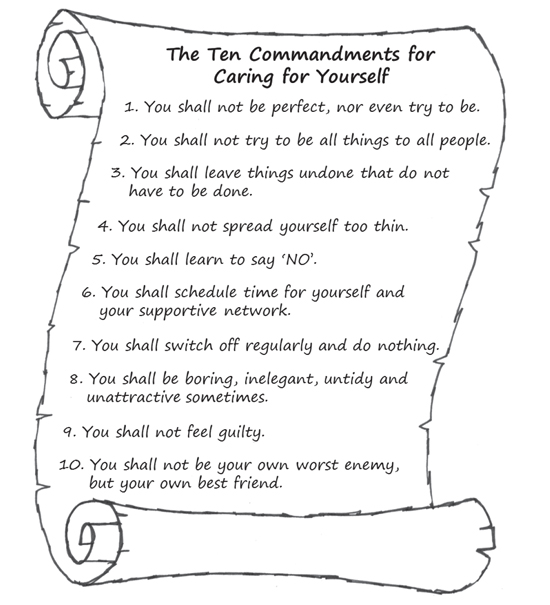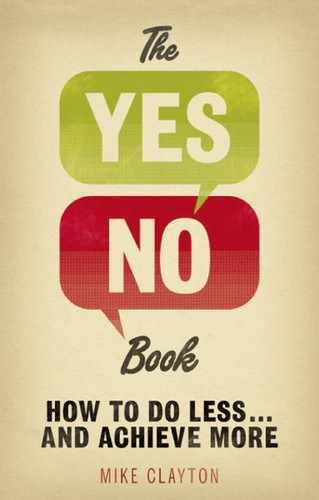CLOSING THOUGHTS
Super-NO
By now, you should be starting to get pretty good at saying ‘YES’ or ‘NO’ at the right time – and really meaning it. You can say ‘YES’ to goal-directed opportunities and ‘NO’ to guilt-directed pressures on you. You know how to separate the immediacy of time-critical problems from the control of time-charmed tasks. You are making progress.
- You are better at knowing what you really want.
- You are better at being prepared to say what you really feel.
- You can communicate your needs more respectfully and more effectively.
- You can spot the situations where you need to be careful.
- You can even avoid some of the situations where you need to be careful.
- You can stand up for yourself.
- People are starting to spot that you can stand up for yourself.
- There are fewer situations where you need to be careful.
- People are fine when you say ‘NO’ and respect you for it.
- People really value it, when you say ‘YES’.
- You are starting to get more of what you want.
Mastery
So what is left? What does mastery of Yes/No entail?
To answer these questions, you need to be totally honest with yourself. What are the little things that you still put up with, but you know you would be better off tackling head-on? Tolerance is good, but not when it serves no useful purpose except frustrating your ability to lead the life you want.
TOLERATION EXERCISE
- Make a list of the things you still put up with at home, among your friends, and at work.
- For each one, what are the consequences for you of continuing to put up with them?
- And what would be the consequences of deciding to not put up with them any more – as long as you did it in a respectful way?
- There is a trade-off. Highlight those items for which the balance says ‘No more!’
- For each of these, write down the actions you need to take or the conversations you need to have to break the cycle of tolerance. For some, you may need to invest some time and even some money to free yourself of the inconvenience. It will be worth it.
You can find a worksheet for this exercise at www.theyesnobook.co.uk
Super-NO
Now that you have done the toleration exercise, it is time to take action on the things you will no longer tolerate. From the list, pick your top priority and eliminate it from your life. And don’t be afraid to tell people that this is what you are doing. Do so respectfully of course, but when you tell people, not only will they understand your behaviours that result from your change of direction but they will also help you to stay true to your new course.
You may even want to find a buddy to share your whole plan with, who can act as an advisor, a coach or a mentor, to help you through it. The sort of person who can do this well is often called a friend.
Ten commandments
The Alzheimer’s Society does a fantastic job in supporting carers of people with dementia. In fact, they do lots of other things extremely well. When a new case comes to their attention, their local branches work hard to find the ways they can best support both the sufferer and their carers. One branch gives out a simple one-page sheet containing ‘Ten Commandments for Carers’. Probably others do too.
In trying to source this document, I found it all over the Internet in many forms and variations. No one seems to know where it comes from. But its message is powerful and necessary. And not just for carers.

